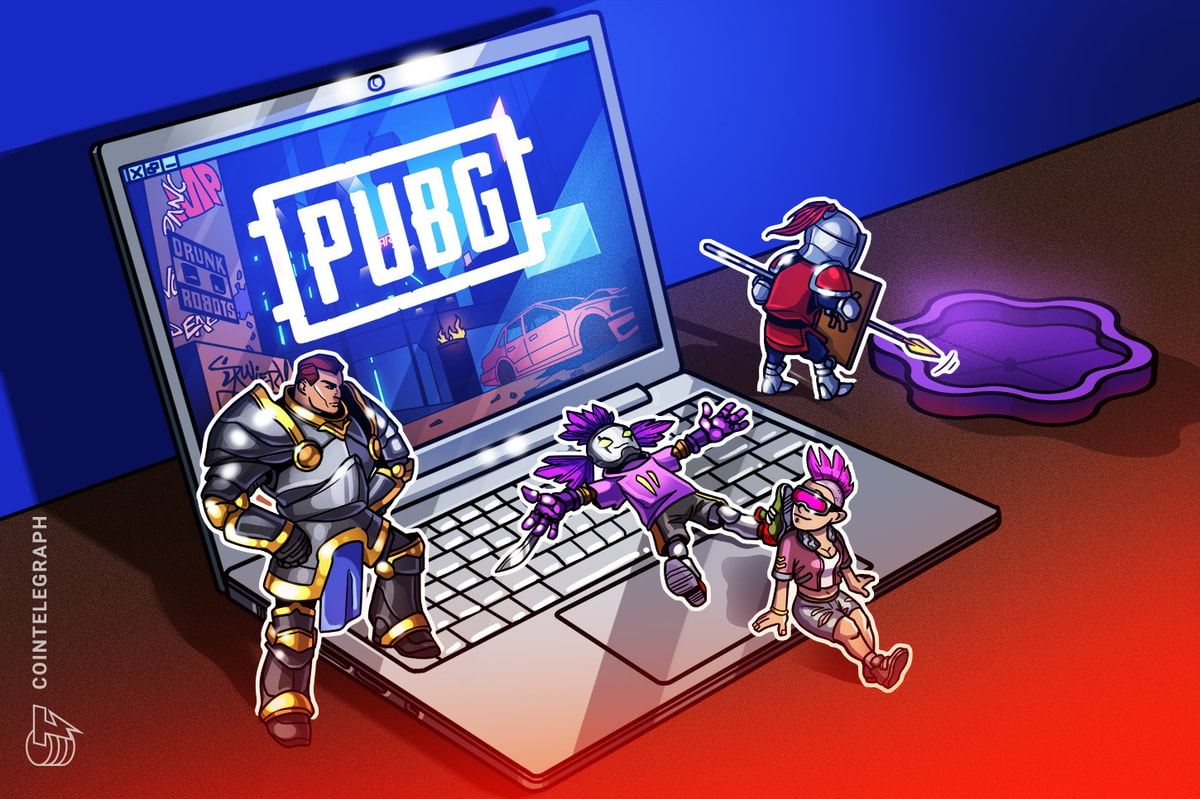Brendan Greene, creator of the online battle royale shooter PlayerUnknown’s Battlegrounds (PUBG), unveiled plans to create a new generation of a gameplay-focused metaverse called Artemis.
Non-fungible tokens (NFTs) are unlikely to make an appearance.
Speaking to IGN on Jan. 4, Greene said he’s “not even thinking about” including NFTs in the project, which is currently under development at his game studio PlayerUnkown Productions.
“Not even thinking about [NFTs].”
The crypto industry has consistently championed NFTs as the best way to secure IP and in-game assets across different gaming ecosystems, but Greene doesn’t seem to agree.
“Our concern is about getting the engine to a state that we can make things in it, and then as I said, Game Two, we’ll test ideas then, but really now, not even thought about it. More just getting some fun games made.”
While NFTs will probably not show up in Greene’s metaverse, he said it’s possible for blockchain technology to be integrated somewhere along the line.
“Blockchains are an interesting financial instrument, as a layer within a digital world […] maybe some future iteration of blockchain or hashgraph or that tech will be interesting,” said Greene.
“Ultimately, it’s a digital ledger, and if we can use a digital ledger, we’ll find the best one and use it. But that’s really it,” he said.
Greene said the metaverse had become a “dirty word,” dismissing the efforts of other metaverse creators of “[intellectual property] bubbles” of sub-par tech that failed to deliver on the hype.
“I want to build a metaverse because I don’t think anyone else is.”
“I think everyone’s building IP bubbles that might talk to each other at some stage in the future, maybe if we’re lucky, but it’s not the metaverse,” Greene said.
The three games of Greene’s metaverse
Greene said the final stage of his metaverse project will be called Artemis, which is actually the third game of three separate projects under development.
The first game, dubbed Prologue, is a realistic survival game built on a world-generation engine that’s trained on NASA data of Earth. The game is currently online for testing and is slated to launch in 2025.
Beta preview of Prologue game scenery. Source: PCGames
The second game, currently unnamed, will focus more on large-scale multiplayer worlds, with millions of characters across massive worlds. Both projects will be integrated into the final stage of Artemis.
Greene said the end goal of Artemis is to create a “3D internet” where players can create, modify and engage in multiplayer gameplay across a swathe of different worlds.
“The Metaverse is a 3D internet. You should be able to create your own worlds and just have them all operating on the same protocol, like HTTP. So a world is a page, and that’s what I’m trying to do with Artemis.”
Greene added that the gameplay in Artemis would follow a structure similar to games such as Minecraft and Star Trek Holodeck, focusing heavily on user-generated content and creativity.
Related: AI models predict the ultimate crypto portfolio for 2025
Greene left the active development team of PUBG in March 2019 to focus on building out new games and tech in PUBG Special Projects and his spin-off gaming studio PlayerUnkown Productions.
The metaverse was one of the hottest narratives in both crypto and the wider tech scene between 2020 and 2022. During this period of time, several crypto projects rallied to monstrous valuations on the promise of delivering a functioning metaverse but have since fizzled out.
Mark Zuckerberg re-branded his social media company and has since burned over $40 billion in the pursuit of creating a functional metaverse.
Asia Express: Low users, sex predators kill Korean metaverses, 3AC sues Terra

Leave a Reply